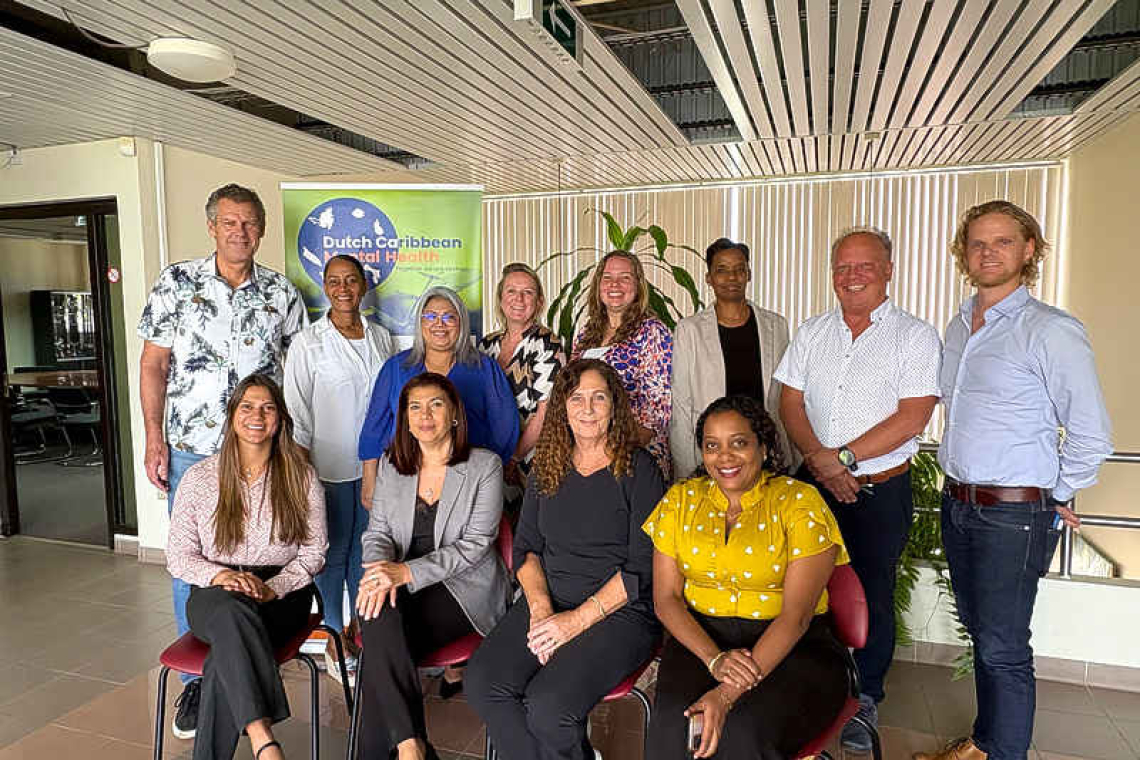Top row, from left: Henk Kamsteeg, Denise Beeke, Caroline Hart, Kathelijne van den Boogert, Krista Oplaat, Kay-Linda Dedier, Jeroen Wisselink and Matthijs Doornbos. Bottom row, from left: Amy van der Linden, Ghislaine Cijntje-Maduro, Tineke Alberts and Indira Madhuban.
WILLEMSTAD--For the first time, a joint overview of mental healthcare on the Caribbean islands in the Kingdom of the Netherlands is available.
With this Regional Mental Healthcare Report for the Caribbean, the Dutch Caribbean Mental Health Federation (DCMH) presents a first: a clear and comparable picture of the nature and extent of mental health problems in the region. The Report for the Caribbean is an important step for DCMH and contributes to better coordination and increased knowledge sharing.
DCMH consists of the organisations FSMA Respaldo (Aruba), GGZ Curaçao, Addiction Clinic Brasami (Curaçao), PSI Skuchami (Curaçao), Mental Health Foundation (St. Maarten), and Mental Health Caribbean (Bonaire, St. Eustatius and Saba). In total, data were collected from nearly 8,400 clients across five islands. Most clients receive care on their own island, while a smaller portion receive treatment on another island within the Kingdom.
The regional overview shows, among other things, which mental health conditions are most common. Psychotic disorders are at the top. These are conditions in which people have difficulty distinguishing reality from thoughts. They may, for example, experience delusions or hallucinations. Depressive mood disorders follow. Neurodevelopmental disorders are in third place. These are disorders such as ADHD or autism, which often become apparent at a young age and are related to the way the brain develops.
Trauma- and stress-related disorders, such as post-traumatic stress disorder (PTSD), are in fourth place. These disorders develop after traumatic or shocking events and can lead to anxiety, tension and sleep problems. The fact that these four groups are the most common provides important information about the focus of care on the islands.
According to DCMH, the regional overview not only offers a unique perspective on mental healthcare in the Caribbean part of the Kingdom, but also forms an important basis for future policy, improved care, and further research. The federation has therefore decided to continue the monitoring.







